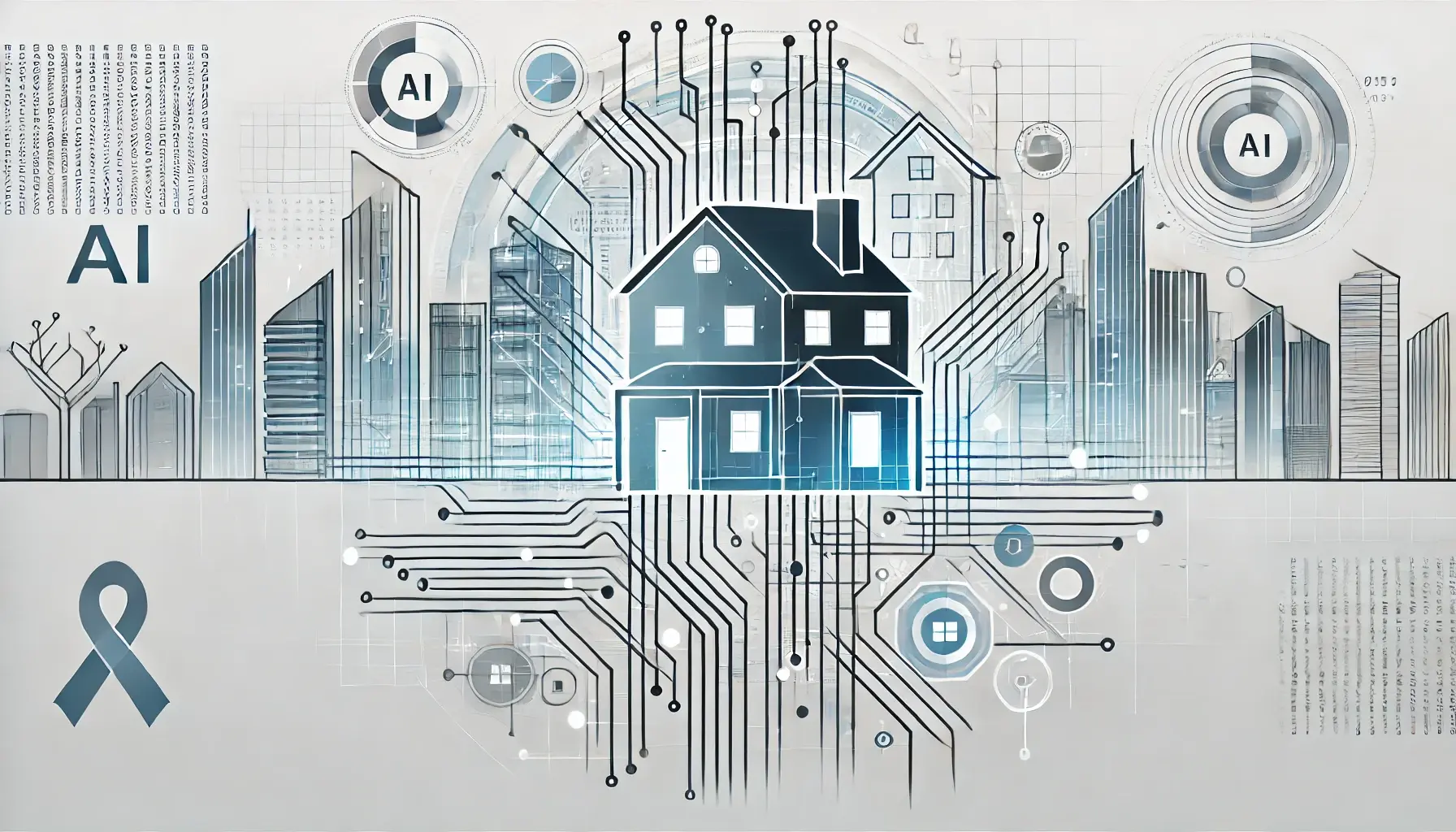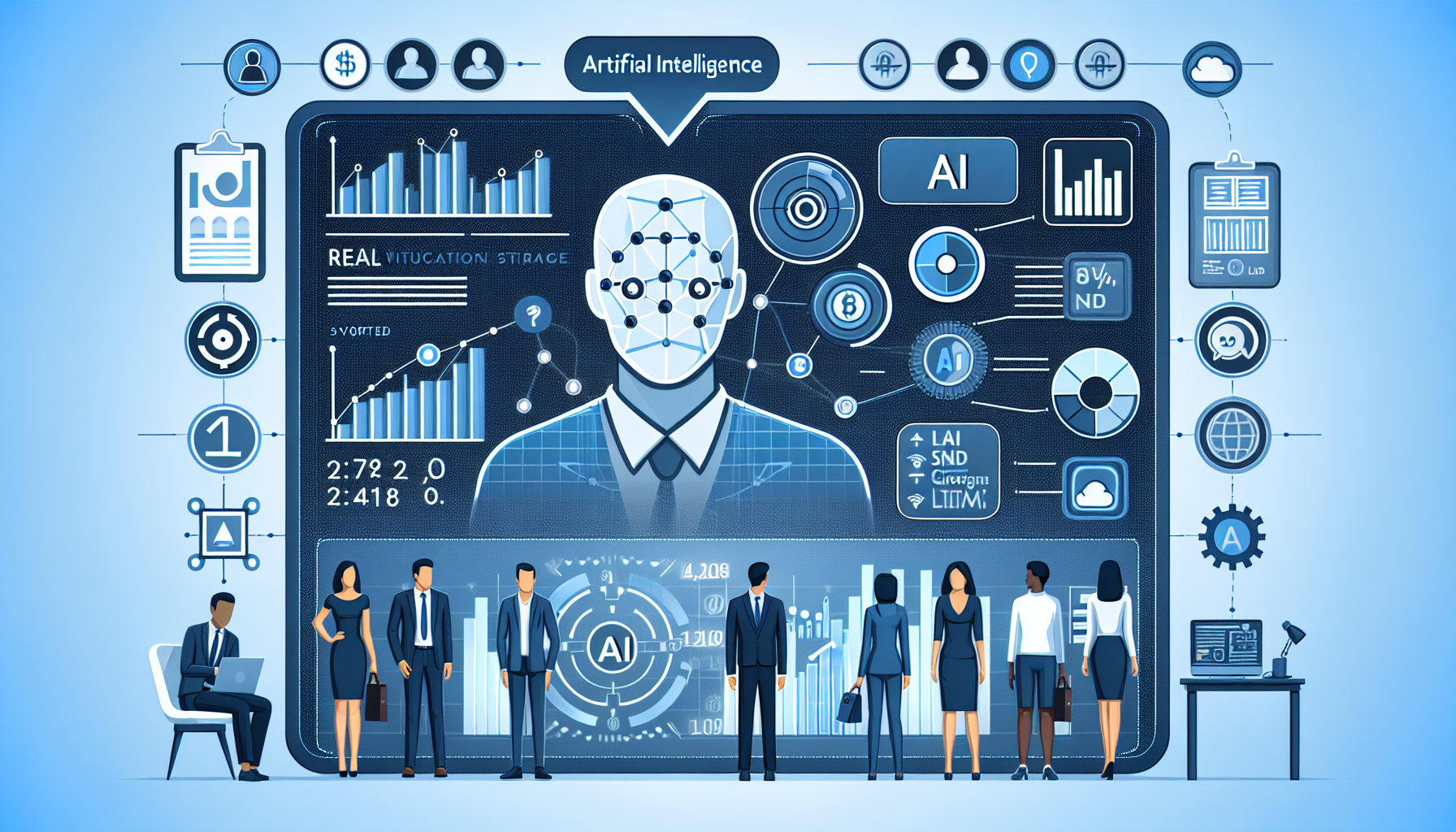Did you know that 72% of real estate professionals believe that AI technologies will significantly enhance their operations in the next few years? Welcome to the future, where AI for real estate isn't just a buzzword; it’s a transformative force! From generating compelling property listings to scoring leads and analyzing call quality, the applications of AI are vast and varied. In this article, we'll discover how AI tools are making waves in the real estate market, improving efficiency, and creating seamless experiences for agents and clients alike.
AI for Content Creation
In recent years, the rise of artificial intelligence (AI) has transformed how content is created, distributed, and consumed. With the sheer volume of information available online, businesses, marketers, and creators are constantly seeking innovative ways to engage their audiences. AI has emerged as a powerful tool in this quest, offering solutions that enhance creativity, optimize content, and streamline workflow.
The Role of AI in Content Generation
AI-driven tools are now capable of generating written content that can rival human creation. Natural Language Processing (NLP), a subfield of AI, enables machines to understand and respond to human language in a way that feels natural. This capability allows AI to craft articles, blogs, product descriptions, and even entire books.
Imagine a marketing team tasked with producing daily blog posts. Manually writing these articles can be time-consuming and resource-intensive. Enter AI writing assistants, which can draft high-quality blog posts in a matter of minutes. These tools analyze existing content, utilizing algorithms to produce articles that are coherent and relevant. Among popular AI writing tools are Jasper, Writesonic, and Copy.ai, offering various features that cater to different content needs.
Personalization and Audience Engagement
The ability of AI to analyze data at scale is another game-changer in content creation. By processing user data, AI can provide insights into audience preferences and behaviors. This information is crucial for tailoring content to meet the specific interests of various audience segments.
For instance, if an online retailer notices that a particular demographic often engages with eco-friendly products, AI can help craft content that speaks directly to that interest. Furthermore, AI tools can personalize email marketing campaigns, making suggestions based on user behavior and preferences. By leveraging data analytics, brands can create a more engaging experience that resonates with their audience.
Content Optimization
Creating great content is just one part of the process. The next crucial step involves ensuring this content reaches its intended audience. Here is where AI excels in optimization. Search Engine Optimization (SEO) is essential for increasing visibility on search engines, and AI has significantly improved how SEO is approached.
AI tools can analyze top-performing articles in a niche, identifying keywords and phrases that drive traffic. By employing these insights, content creators can refine their writing, ensuring it meets the best SEO practices. Tools such as Yoast and Clearscope incorporate AI to help users optimize their content for better search engine performance, analyzing factors like readability, keyword density, and structure.
Additionally, AI can predict trends and shifts in audience interest. By monitoring social media chatter, search queries, and other online behaviors, AI can provide invaluable foresight to content creators. This allows brands to stay ahead of the curve, producing timely and relevant content that taps into what audiences are currently seeking.
Enhancing Creativity
While some might argue that AI lacks the creativity that comes from human experience, the opposite can also be true. AI can enhance creativity by serving as a brainstorming partner. Creative professionals can use AI to generate ideas, explore different writing styles, or even create drafts that serve as a foundation for human refinement.
For example, a novelist might struggle with writer's block, unable to find the right direction for their story. An AI tool can offer suggestions based on existing plot points or characters, enabling the writer to move past creative barriers. Not just limited to text, AI tools can also generate visual content—helping designers create stunning graphics or website layouts.
Workflow Streamlining
Managing multiple components of a content strategy can be overwhelming. AI drives efficiency by automating various elements of the content creation process, from research to editing and publishing. This automation not only saves time but also reduces the likelihood of human error.
For instance, AI-powered tools like Grammarly or Hemingway Editor provide real-time grammar and style checking, making the editing process smoother. Instead of spending hours editing, writers can ensure their content is polished with just a few clicks. Additionally, platforms like Buffer or Hootsuite use AI algorithms to determine optimal posting times, so creators can maximize their outreach and engagement without constantly monitoring social media.
The Ethical Considerations of AI in Content Creation
As AI becomes an integral part of content creation, it is important to address ethical considerations. The use of AI-generated content raises questions around authenticity, copyright, and transparency. For instance, readers may feel deceived if they discover that an article was produced by AI rather than a human author.
Ensuring that content creators are transparent about their use of AI tools is crucial. Proper disclosure not only fosters trust with audiences but also sets ethical standards within the industry. Additionally, as AI endeavors to replicate human writing styles, the boundary between human authorship and AI-generated content needs careful navigation to avoid infringing on existing copyrights.
Combining Human Creativity with AI Efficiency
Ultimately, the most successful content strategies are likely those that combine the strengths of both AI and human creators. While AI can produce vast quantities of content quickly, it still lacks the nuance, emotion, and personal touch that humans bring to their writing. As such, the future of content creation lies in collaboration.
For example, a company may use AI tools to generate initial ideas or outlines, which human writers can then refine to add depth and personality. The partnership creates a synergistic effect, where AI handles data analysis and pattern recognition, while humans contribute context, emotion, and unique perspectives.
The Future of AI in Content Creation
Looking ahead, the landscape of content creation is set to evolve even further as AI technology continues to advance. New developments in machine learning and generative AI suggest that tools will become increasingly sophisticated, learning from user feedback to improve their output continually.
We can envision a future where AI tools not only assist with writing and optimizing content but also create immersive experiences through augmented and virtual reality. This evolution presents exciting opportunities for content creators to engage audiences in entirely new ways, possibly reshaping how we think about storytelling.
In summary, AI’s impact on content creation is profound and far-reaching. By leveraging its capabilities, creators can enhance their workflows, gain deeper insights into audience preferences, and produce high-quality content more efficiently. As we navigate this evolving landscape, embracing AI as a partner will be key to thriving in the ever-changing world of content marketing and creation.
The integration of AI in real estate is not a distant dream; it’s happening now! From improving content generation to optimizing lead management, these intelligent technologies are reshaping how we conduct real estate business. As industry professionals, embracing AI tools can make a significant difference in productivity and client satisfaction. Ready to step into the future? Let’s harness the power of AI together and revolutionize the way we work in real estate!




